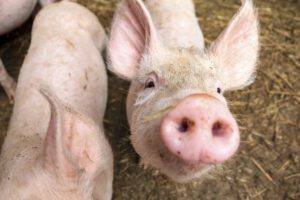
Despite the constant change in the medical research environment, novel methods often result in revolutionary discoveries. Among these, the upsurge of porcine organs and tissue usage has been at the forefront, driving scientific research to make significant strides in solving and understanding relevant health problems. Read on to learn more about porcine and pancreatic cancer research.
Revealing Insights through the Porcine Models
At the heart of this debate is the complex relationship between porcine tissues and pancreatic studies. The pancreas, an organ with many functions with far-reaching consequences for human health, becomes the main target of all-encompassing research because it is connected with some diseases such as diabetes, spinal cord injury, and cancer of the pancreas.
Pancreatic cancer, with its rapid advancement and evasive nature, calls for revolutionary solutions from animal biotech companies. The porcine tissues have been recognized to be valuable partners in the struggle against pancreatic diseases, and also, they may alter our way of combating pancreatic diseases.
Porcine: A Research Case Study in Pancreas
A recent pancreatic cancer research study led by the Okayama University Graduate School of Medicine, Dentistry, and Pharmaceutical Science in Japan supports the idea that porcine organs are promising in pancreatic research.
This was conducted and published by the National Library of Medicine, which is affiliated with the National Institutes of Health, USA. Thus, these results emphasize the therapeutic potential and the role that porcine tissue has played in the improvement of pancreatic diseases.
Porcine Models in Different Medical Fields
One of the important things that separates pig tissue is its high biological similarity to humans. Pigs possess anatomical, physiological, and genetic similarities that are close to those of humans, which makes them suitable to serve as models in research on numerous medical phenomena, including heart-lung block lung transplantations.
The common biological basis covers more than pancreatic research and includes such diverse fields as spinal cord injuries and organ transplants. Find out more on our porcine tissue FAQ page.
A Legacy of Support
The animal biotech company Animal Biotech Industries, Inc. (ABI), which has been the leading provider of post-mortem porcine tissue and organ blocks to biomedical researchers, has played a significant role in support of many earth-changing studies.
ABI conducts tissue, organs, glands, and post-mortem tissue harvests and provides advisory services to customers for superior material choice. With over 20 years of experience in the field, we ensure that our USDA-inspected abattoir-harvested products meet strict conditions and are extracted rapidly, precisely, and without contamination. Our highly trained anatomists and physiologists are capable of not only procuring but also advising on certain tissues necessary for specific research.
ABI implements custom packaging for tissues during transportation, and our proven methods based on scientific progress ensure ideal preservation from extraction to delivery. Contact ABI for the hassle-free, customized, and dependable harvesting.
Ethical Evolution
With the science community moving through a shifting culture of ethical considerations, Animal Biotech’s post-mortem harvesting and transportation of porcine blood, tissue, organs, and glands goes hand in hand with their commitment to good and responsible animal management. This transition also guarantees that, while maintaining research ethics, researchers can still have access to the necessary resources for their research.
Conclusion
In summary, the value of porcine glands, tissues, and organs in improving human health and medicine cannot be underestimated. These exceptional animal tissue products, having close relation to human tissues serve as a portal for revolutionary medical breakthroughs. Animal Biotech Industries, Inc. keeps striving for ethical principles to be always the first on the agenda in scientific research. Contact us to learn more.


